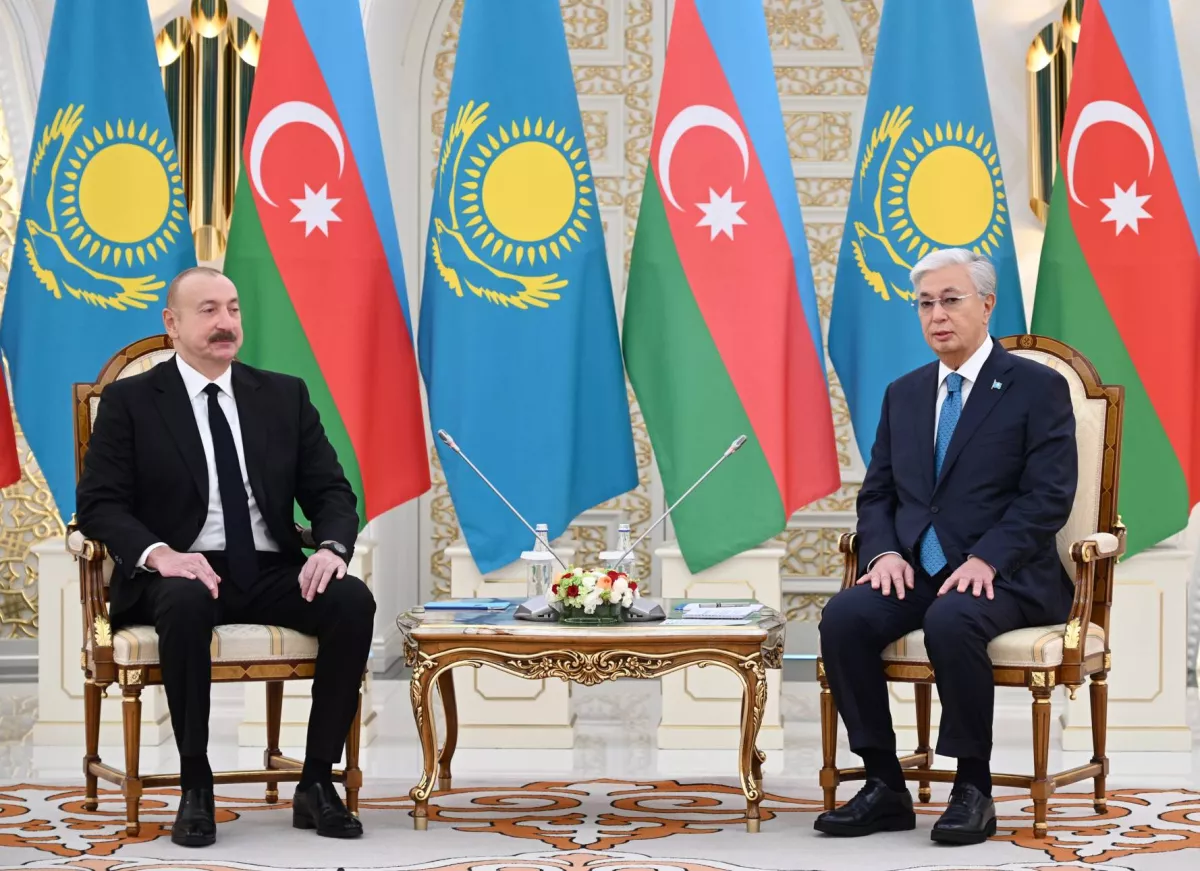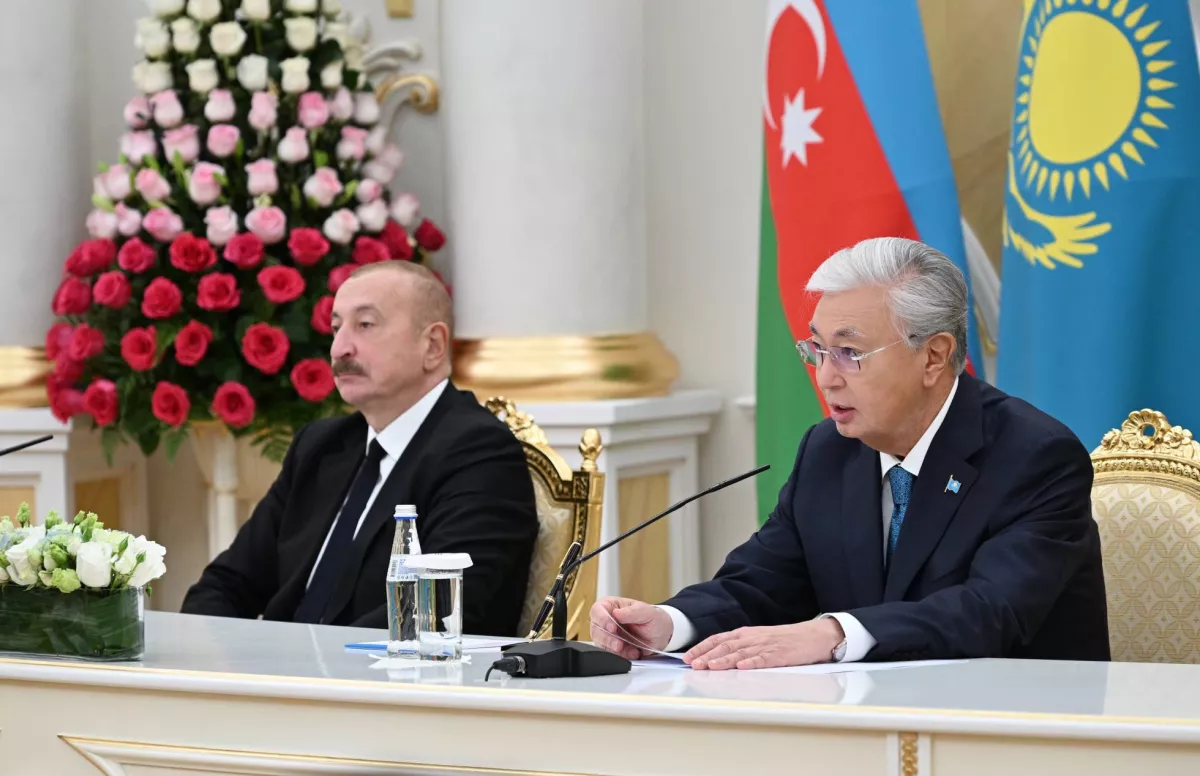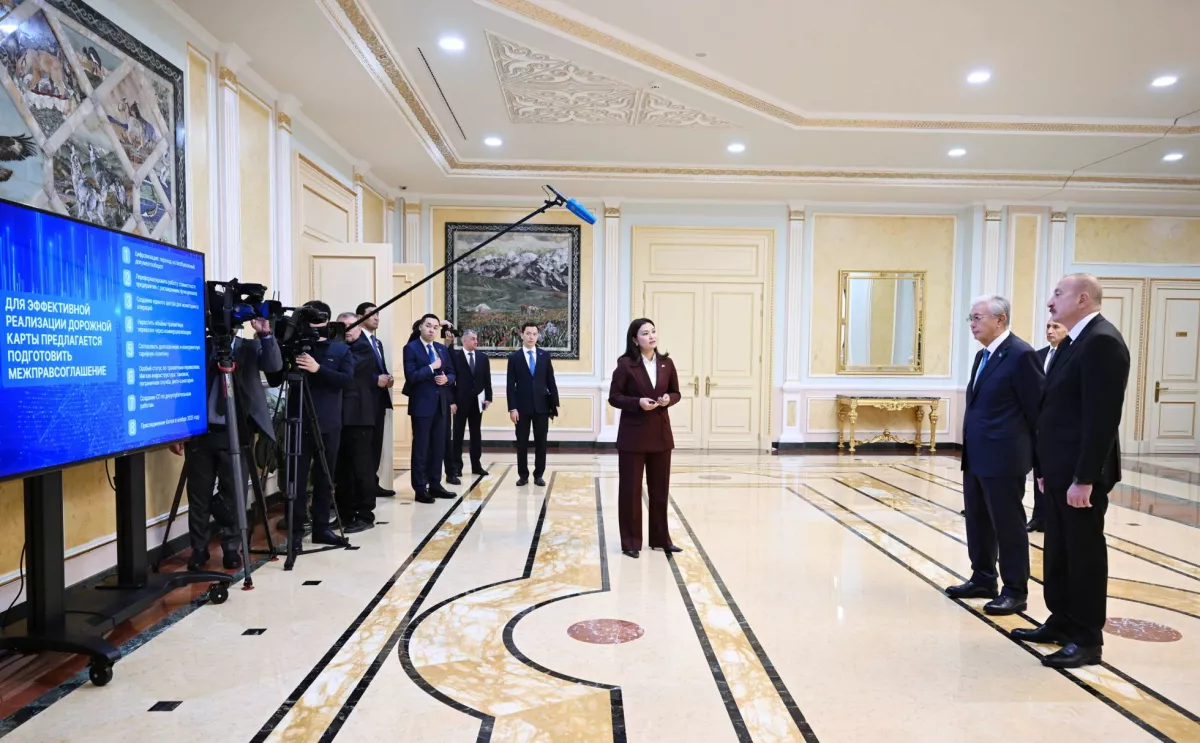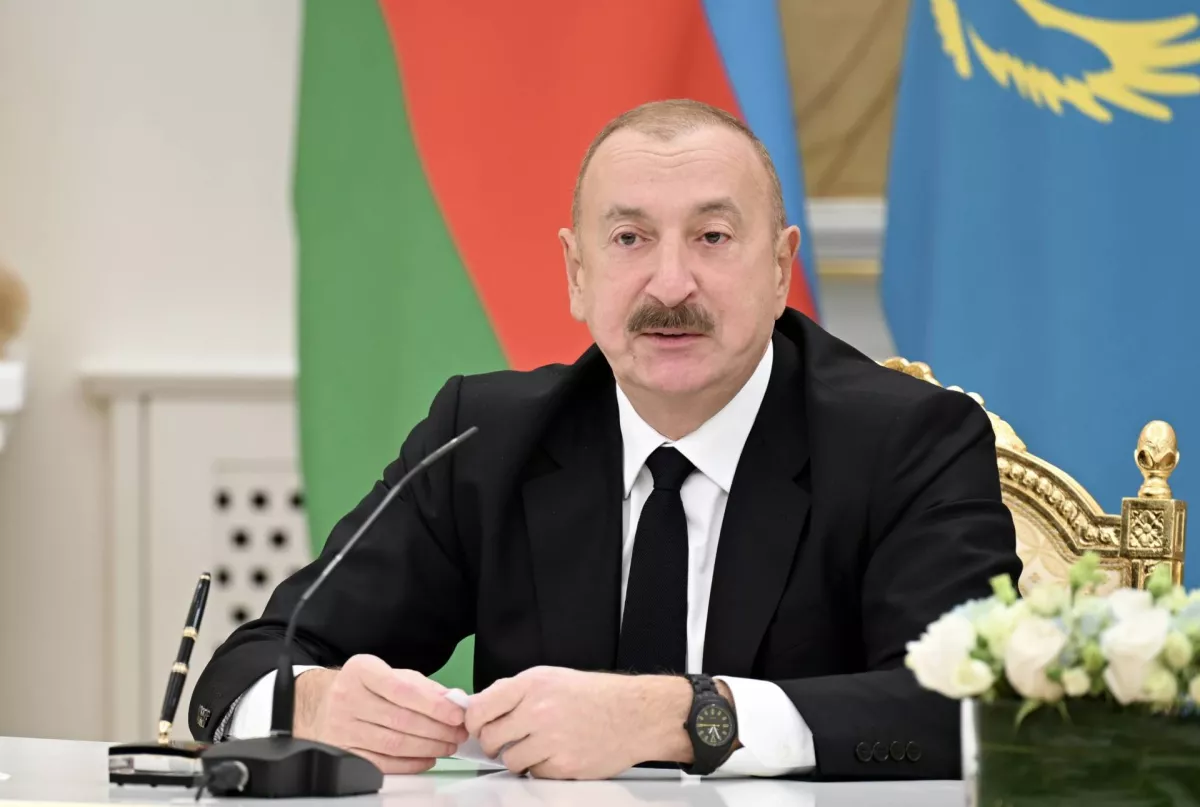Two Turkic leaders — one path to economic breakthrough Baku and Astana eye $1 billion trade milestone
With the goal of taking bilateral economic relations to a new level, Baku and Astana are steadily boosting trade turnover, deepening cooperation in transport and energy, advancing “green” technologies and IT, and promoting investment projects. To accelerate these efforts, the 21st meeting of the Joint Intergovernmental Commission (JIC) on Trade and Economic Cooperation between Azerbaijan and Kazakhstan took place in Baku in mid-October. The momentum continued on 20–21 October during the state visit of Azerbaijani President Ilham Aliyev to Kazakhstan, further strengthening intergovernmental and business ties between the two Turkic nations.
“It is a great honor and pleasure for me to welcome you on an official state visit to the Republic of Kazakhstan. This is a very important event from the perspective of further strengthening the strategic partnership and allied relations between our countries,” said Kazakh President Kassym-Jomart Tokayev during a one-on-one meeting with President Aliyev. “For us, fostering both economic and trade-economic cooperation — not to mention advancing our political partnership — is an urgent and highly important task.”

In turn, President Ilham Aliyev noted that he has been following Kazakhstan’s ongoing reforms with great interest and fully supports the country’s course towards modernisation and strengthening its potential. “We are focused on strengthening interaction across all areas. Today, as part of our negotiations, as well as during the session of the Supreme Interstate Council, we will once again review the extensive agenda and, naturally, outline further steps to strengthen our partnership,” he said.
Speaking at the second session of the Supreme Intergovernmental Council, President Ilham Aliyev recalled the recent meeting of the bilateral Intergovernmental Commission held in Baku, the results of which were very positive. “ Significant results have been achieved in strengthening trade and economic ties. Our trade turnover is growing, and we are very pleased with that, of course. The joint investment fund we established also has tremendous potential. Several projects are already underway, some concrete projects are under review, along with proposals for joint financing through the joint investment fund,” the head of state emphasised.

During a joint press statement, the President of Kazakhstan also expressed interest in expanding investment initiatives and creating joint ventures: “Both sides have expressed interest in establishing joint ventures, with significant progress made in this regard. For example, the launch of joint transformer production is under consideration. Construction of residential and infrastructure facilities is underway, joint shipbuilding projects are under review.”
He added that the governments of both countries have been tasked with closely monitoring these areas and, in the shortest possible time, adopting a plan or roadmap for the development of industrial cooperation.
Tokayev emphasised that the negotiations focused particularly on expanding trade ties, and the sides agreed to take the necessary measures to double bilateral trade in the near future, reaching $1 billion.
This goal appears highly achievable, given the strong trade dynamics between Azerbaijan and Kazakhstan. Since 2020, trade turnover between the two countries has increased fivefold. Specifically, while total mutual trade reached $470 million last year, it had already climbed to $547 million in just January–August of this year, reflecting significant commercial activity.
During the council session in Astana, the presidents discussed prospects for expanding cooperation in trade, investment, agriculture, and energy. Significant potential was identified in the energy sector, encompassing both traditional and renewable sources. President Ilham Aliyev also highlighted the trilateral agreement signed last November between Kazakhstan, Azerbaijan, and Uzbekistan on strategic partnership in green energy, which includes the construction of an energy cable along the Caspian seabed.
The partnership in agriculture is also rapidly developing. Last year, Azerbaijan imported over 450,000 tonnes of grain from Kazakhstan. Looking ahead, the two countries plan to establish joint centres for processing and distributing agricultural products in the South Caucasus and Turkish markets.

A key part of the Supreme Intergovernmental Council session was devoted to joint initiatives in the transit and transport sector. Notably, the day before, a presentation was held on the joint “Middle Corridor Development” (Trans-Caspian International Transport Route, TITR) project. The presentation highlighted the corridor’s strategic significance as the main transport and logistics route connecting China and Central Asian countries with Europe, playing a crucial role in strengthening both regional and intercontinental trade.
It was noted that shipments from China to Azerbaijan are steadily increasing and are projected to triple by 2030 compared to current volumes. In this context, the heads of state were briefed on specific measures and initiatives aimed at enhancing the corridor’s efficiency, profitability, and competitiveness.
“At a time when new transport routes are opening, when projects related to connectivity are being implemented across the broader Eurasian region, when the South Caucasus and Central Asia are becoming more interconnected and often operate within a single geographic space, all this requires permanent attention and, of course, the engagement of the heads of state to translate this interaction into concrete results,” said President Aliyev in a joint press statement.
The Azerbaijani president also emphasised that one of the achievements of the Washington summit held in August is the project The Trump Route for International Peace and Prosperity (TRIPP): “With President Trump’s name behind this project, it is clear that it will indeed be implemented, opening yet another route along the Middle Corridor. In addition to the traditional route, another one has been added – through Zangezur, with a turnover of 15 million tons and meeting the latest standards. The volume of cargo from Asia to Europe and back through our countries has potential for growth in itself, and there will also be even greater potential for receiving and shipping this cargo.”
In turn, in a press statement, President Ilham Aliyev noted that the Zangezur Corridor project also holds enormous potential, and all work on road and rail connections within Azerbaijan will be completed by mid-next year. “We do hope that progress in other countries will be just as rapid, and in that case, the opening of the Zangezur Corridor could take place by the end of 2028,” he said.

However, even today, Azerbaijan has lifted all restrictions on cargo transit to Armenia that had been in place since the time of occupation. The first such shipment was Kazakh grain, transported to Armenia via Azerbaijan and Georgia. This development is a strong indication that peace between Azerbaijan and Armenia is now a reality not only on paper but also in practice.
As key links of the Trans-Caspian route, Kazakhstan and Azerbaijan are steadily modernising transport infrastructure, digitising logistics services, improving cross-border regulations, and simplifying tariff and customs procedures to create a transparent and attractive logistics cycle for freight operators. The success of these efforts is reflected in the fact that, by the end of 2024, container transport volumes along the TITR nearly tripled, and over the first eight months of the current year, they doubled again.
“By effectively leveraging their advantageous geographic positions and developing the Middle Corridor, Astana and Baku play the role of an important bridge between Asia and Europe. This has not only increased freight volumes but also significantly expanded transit potential,” Azer Badamov, Deputy Chairman of the Azerbaijani Milli Majlis Committee on Economic Policy and Entrepreneurship, told local media. “Last year, freight volumes along the TITR grew by 62%, reaching 4.5 million tonnes, and the integration of more than 20 logistics and port operators from Azerbaijan, Kazakhstan, Georgia, and Türkiye along this route has improved transport efficiency and reduced delivery times from 38 to 19 days.”
According to the MP, in light of the new realities created by Azerbaijan, the TRIPP route, as an important segment of the Middle Corridor, will further increase international freight volumes. With its operational launch, the length of the Middle Corridor will be reduced by 600–700 km, resulting in a 10–15% decrease in transport costs.
On October 21 in Astana, with the participation of the presidents of both countries, a ceremony was held for the exchange of Azerbaijani–Kazakh documents, including the signing of several agreements on the business track. Among them were intergovernmental agreements on cooperation in industrial property protection and on strategic partnership in the energy sector.
Memorandums of cooperation were signed between Samruk-Kazyna JSC and the Azerbaijan Transport and Communications Holding (AZCON), as well as a framework agreement between the Samruk-Kazyna Investment Fund and the Azerbaijan Investment Holding, together with SOCAR, to establish a joint investment mechanism. Additionally, the relevant agencies of the two countries concluded intergovernmental memoranda of understanding on cooperation in artificial intelligence and in the field of competition policy.








